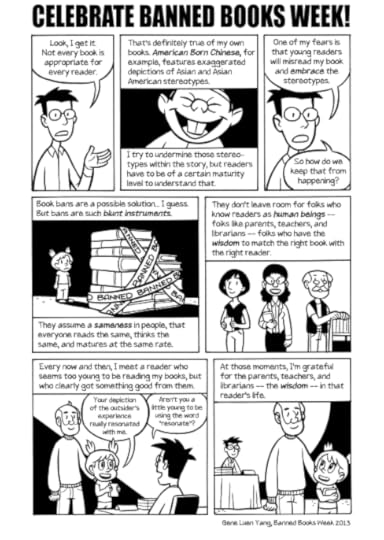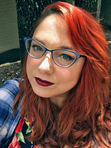E. Kristin Anderson's Blog, page 31
September 27, 2013
Banned Books Month: Guest Post from Gene Luen Yang: Celebrate Banned Books Week!

Gene Luen Yang.
Gene Luen Yang began drawing comic books in the fifth grade. In 1997, he received the Xeric Grant for Gordon Yamamoto and the King of the Geeks, his first comics work as an adult. He has since written and drawn a number of titles. His 2006 book American Born Chinese was the first graphic novel to be nominated for a National Book Award and the first to win the American Library Association’s Michael L. Printz Award. It also won an Eisner Award for Best Graphic Album – New. A short story from The Eternal Smile, his 2009 collaboration with Derek Kirk Kim, won an Eisner Award as well. His books Prime Baby and Level Up (with illustrator Thien Pham) were also nominated for Eisner Awards. Gene currently writes the graphic novel continuation of the popular Nickelodeon cartoon series Avatar: The Last Airbender. His latest project Boxers and Saints will be released in September 2013.





September 26, 2013
Banned Books Month: Guest Post from Brenda Cooper: When Information Hid in Pages
I was a teenager in the 1970’s. I was 11 when THE ANARCHIST COOKBOOK came out. Teenagers know far less than they think they do, but we did know that the government hated the book. That meant we needed to get our hands on one.
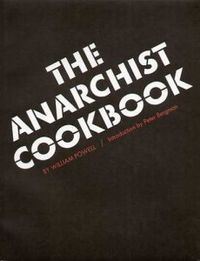
Ozark Press, Reprint Edition, June 2002.
I think I had mine by the time was thirteen. I kept it hidden in my bedroom the way young boys or old men hide pornographic magazines under the bed. THE ANARCHIST COOKBOOK contained information about how to make Molotov cocktails and other bombs. The information was partly incorrect, but it was so in-your-face to the government (and so very banned in so many places) that just owning felt like an act of defiance.
No one knew I had it. I bought it with cash, maybe even through a third party. I don’t really remember the details any more. But there was no database that tracked the purchase, nothing the government could have known except that somewhere in Los Angeles another copy was sold. Perhaps they could not have even known that, not then.
I think I still have my copy – 40 years old now – in a box in the storage bin. I haven’t touched it in years. I wasn’t actually ever very interested in its contents. After all, I never wanted to make a bomb. But even now the thought of owning it is warm and sweet and a little nervous.
Today, of course, I could find accurate and up to date information about how to make almost anything dangerous I want on my home computer. But the NSA will know what I went to look at, will see if I get curious about pressure-cooker bombs like the ones the Tsaranev brother’s used on the Boston Marathon, will track the pages I visit if I look up how the Taliban constructs I.E.D.’s, will know how long I talk if I call a professor in Chechnya.
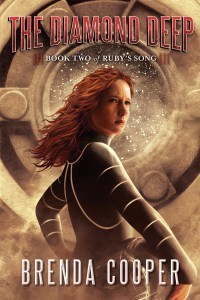
Pyr, October 2013.
I might do these things in preparation for committing terrorist acts of fiction or perhaps of poetry.
Some faceless big data program might then recognize what I did and send a stranger in DC (or perhaps in a foreign country) to find me online. If I’m lucky, they will find this post and decide I am only moderately dangerous.
Information (or misinformation) used to hide in the crisp white pages of books, but now it rides out in the open. Librarians have been fighting the government’s desire to know who checked what book out when for years. But we have no librarians to defend the patrons of the Internet, and information cannot be kept under the bed of teenagers easily any more. Instead we live in a world where banned books have morphed into watched keywords. I like this brave new world in so very many ways, but there is a secret dark heart to it that is scarier than owning The Anarchist’s Cookbook was in 1973, when 1984 was still ahead of us and we didn’t really think the events in that banned book might happen, either.

Brenda Cooper.
Brenda Cooper writes science fiction and fantasy novels and short stories. Her next novel is THE DIAMOND DEEP, which will be out in October 2013 from Pyr. It’s book two of a two-book series that started with THE CREATIVE FIRE. She has seven novels out and numerous short stories. Brenda is also a technology professional and a futurist, and publishes non-fiction on the environment and the future.
See her website at www.brenda-cooper.com.
Brenda lives in the Pacific Northwest in a household with three people, three dogs, more than three computers, and only one TV in it.





September 25, 2013
Banned Books Month: Guest Post from Meg Medina: On Books, Asses and Solidarity — What I Learned from Being Censored
What did I read as a kid?
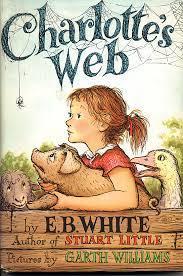
HarperCollins, Reprint Edition, December 2004.
The safe answer is CHARLOTTE’S WEB, my all-time favorite tale of friendship and loyalty.
But that wasn’t all. If you must know, I also read my sister’s copies of FEAR OF FLYING and THE HAPPY HOOKER in the seventh grade. It was probably not the best choice for a 13-year-old, but it was nothing that turned me toward prostitution, drug use or any other vice.
The truth is that I’ve always liked stories – even classics like JAMES AND THE GIANT PEACH — that have drawn fire for reasons that seem ridiculous to me. That’s true even now. Matt de la Peña’s work ran into trouble in Arizona for inciting racial problems, for example. Or, closer to home, a Henrico County school board member questioned the inclusion of Julia Alvarez’s work on one of our high school reading lists.
Typically, I shake my head and read on. What a bunch of weirdos, I tell myself. What are they so scared of?
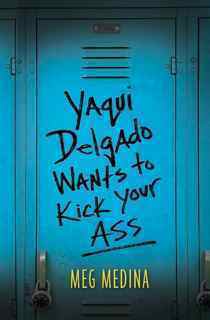
Candlewick Press, March 2013.
But all that changed last week when I found the censorship fight on my very own doorstep. As I reported on my blog, I was politely uninvited to be a guest speaker at a Virginia middle school bullying program because of the title of my YA novel, YAQUI DELGADO WANTS TO KICK YOUR ASS (Candlewick Press).
I should have seen it coming. There had been warning shots being fired elsewhere, but I was too naïve to respond. This past summer, the Richmond City School system agreed to list me as a recommended author but wouldn’t list the title on the summer reading list. Weeks later, I saw an ad for one of my speaking arrangements with the title listed as YAQUI DELGADO WANTS TO KICK YOUR …
But this was more direct.
My first reaction to the principal’s email was one of shock and embarrassment. How else should you feel when a school implies that you are falling short of its shared moral standards? That what you have to say is offensive or coarse?
Luckily, the shame was short lived. And for THAT I have an entire community of book lovers to thank.
Shortly after I posted my thoughts online, my blog, Facebook page and my twitter feed exploded with support. Appalled students, teachers and librarians weighed in, inviting me to their schools, telling me about how my book is circulating well, assigning the title to their book clubs. Author friends at every stage of their careers offered unwavering support. These included the fabulous and fearless Ellen Hopkins and Tanya Lee Stone, whose books are routinely challenged. My agent at Andrea Brown Literary Agency and my friends at Candlewick Press came to my immediate defense.
And finally, there came the most startling and meaningful post of all. Judy Blume encouraged me to stand my ground.
I stared for a long time at the screen, remembering how I read ARE YOU THERE GOD? IT’S ME, MARGARET in secret during the fourth grade. Judy has spent a lifetime dealing with censorship, and as a kid, I was the lucky beneficiary of her efforts. In her post, she pointed me in the direction of the National Coalition Against Censorship and urged me to contact them.
For those of you who are unfamiliar, the NCAC collaborates with the American Booksellers Foundation for Free Expression (ABFFE) on a project called Kids Right to Read which offers support, education, and advocacy to people facing book challenges or bans. That means that every time some well-meaning Concerned Adult wants to yank a book from a school library or book list, the NCAC is there to fight for the author and, more importantly, for kids.
I made a donation right away.
Sadly, my troubles with YAQUI DELGADO WANTS TO KICK YOUR ASS are probably not over. What IS over, however, is my inertia.
It has been replaced by a gift of courage that came from intellectual freedom advocates and book lovers all over this country.
So, to everyone who wrote in support — from Alaska to right across the street — mil gracias. You reminded me of how easily adults can get in the way of kids having access to books and ideas – and how it’s up to all of us to stand strong together.
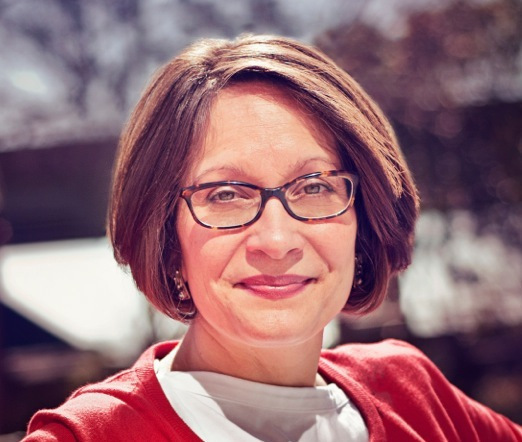
Meg Medina.
Meg Medina is a Cuban American author who writes picture books, middle grade, and YA fiction. Her work examines how cultures intersect through the eyes of young people, and she brings to audiences stories that speak to both what is unique in Latino culture and to the qualities that are universal. She is the author of MILAGROS, GIRL FROM AWAY (Holt BYR); TIA ISA WANTS A CAR (Candlewick Press) for which she received the 2012 Ezra Jack Keats New Writers Award; THE GIRL WHO COULD SILENCE THE WIND (Candlewick Press); and YAQUI DELGADO WANTS TO KICK YOUR ASS (Candlewick Press).
When she is not writing, Meg works on community projects that support girls, Latino youth – and now, anti-censorship initiatives. She lives with her extended family in Richmond, Virginia.





September 24, 2013
Banned Books Month: Guest Post from Sharon Bayliss: Does Anyone Else Secretly Wish That Their Book Would Be Banned?
Recently my publisher donated a copy of THE CHARGE to my old high school library. In my opinion, THE CHARGE isn’t that racy, but I was still a little nervous. What if they thought it wasn’t appropriate for high school students?
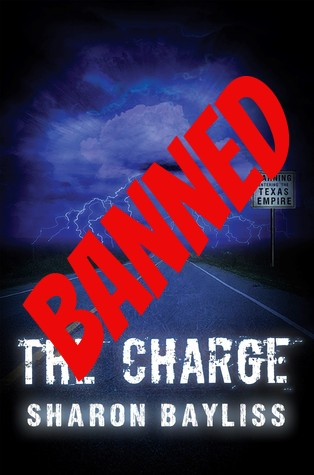
Just wishful thinking…
Then I thought…huh, what if they thought it wasn’t appropriate for high school students? How awesome would it be to end up on the list of banned books in Texas public schools?
I doubt I’ll get that honor, but it certainly would be an honor. I would be among some of the “books that shaped America” such as THE ADVENTURES OF HUCKLEBERRY FINN, THE CALL OF THE WILD, CATCH-22, THE CATCHER IN THE RYE, FAHRENHEIT 451, THE GRAPES OF WRATH, THE GREAT GATSBY, LEAVES OF GRASS, THE SCARLET LETTER, THEIR EYES WERE WATCHING GOD, and TO KILL A MOCKINGBIRD (all books I read in high school or middle school, by the way).
I became curious about which books currently had the honor of being banned in Texas public schools. Here is the official list from the 17th Annual Banned Book Report from the ACLU of Texas:
• PAINTINGS FROM THE CAVE, Gary Paulsen
• TALKING IN THE DARK: A POETRY MEMOIR, Billy Merrell
• FADE; Book 2 of Wake Trilogy, Lisa McMann
• RANSOM MY HEART, Princess of Genovia Mia Thermopolis
• WORLD WAR Z, Max Brooks
• SMILE OF A DOLPHIN, Ed. Marc Bekoff
• AMY AND ROGER’S EPIC DETOUR, Morgan Matson
• THE OLYMPICS: SMITTY II, Bill Gutman
• THE LOTTERY, Shirley Jackson
• ZOMBIES VS. UNICORS, Holly Black & Justine Larbalestier
Am I the only one who has the burning desire to go read all those books right now? According to the ACLU of Texas, things are getting better. Every year that they’ve created the report, the list has gotten smaller.

Uh…what happened in 2006? (This image from http://www.aclutx.org/2010/07/19/17th...)
On the ACLU’s website, you can also read about each individual challenge – which book was challenged and why, and what was decided. I was happy to see that most of the challenges did not result in a ban. The librarians seem to be doing a good job with handling the parents’ complaints on an individual basis, and not immediately calling for a ban just because one parent makes a fuss. Go librarians!
Although banning books is obviously dangerous territory, I think it follows logically that not all books belong in a school library, and that books appropriate for high school might not be appropriate for elementary, and so on. So, I can see how this is a complicated issue. I salute librarians for being gatekeepers, selecting age appropriate books for their libraries and resisting censorship. They really seem to be the most important line of defense against book banning, and the reason why the number of banned books in Texas has decreased.
Who knows, maybe someone will find THE CHARGE in my high school library and be offended enough to challenge it (fingers crossed!). But as honored as I would be to be banned, I’m even more happy to live in a time and place where that would be unlikely.
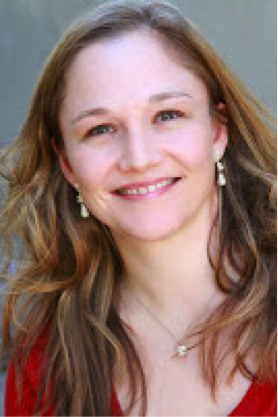
Sharon Bayliss.
Sharon Bayliss is a science fiction and fantasy author living in Austin, Texas. Her debut novel, THE CHARGE, a Texas alternate history fantasy was released in March of this year. Her next novel, DESTRUCTION, will be available in 2014.
You can connect with her at www.sharonbayliss.com and at www.facebook.com/authorsharonbayliss.
THE CHARGE can be found at all major online retailers and at Book People in Austin and The Book Spot in Round Rock.





September 23, 2013
Banned Books Month: Guest Post from Sonya Sones: Banned If I Do, Banned If I Don’t
Okay, everybody. Prepare to be corrupted. Before you stands a vulgar filthy woman! How do I know I am a vulgar filthy woman? I get letters all the time, telling me that I am:
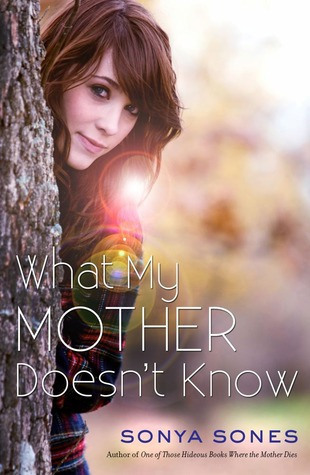
Simon & Schuster Books for Young Readers, Reprint Edition, May 2013.
“Dear Ms. Sones,
I am a teacher, a mother, and someone who cares deeply about our youth. I was totally disappointed to read some excerpts from your book, WHAT MY MOTHER DOESN’T KNOW.”
(A brief aside here: notice that she said “excerpts”? This is typical of people who try to get books banned—they only read the “dirty parts” and almost never take the time to actually read the whole book.)
“Our young people should not have to be exposed to your erotic thoughts and feelings. On any given page, vulgarity and filth can be found! Your book should be removed from all junior high media bookshelves. That’s what we will attempt to do here in Algona. We strive as a community to keep high morals and values. Your book was a huge disappointment. If you are trying to be the next Judy Blume, forget it.
Most Sincerely,
Rita Shmompson”
(name changed to protect the guilty)
Actually, Rita, I’m not trying to be the next Judy Blume . . . But I wouldn’t mind being the next Judy Blume. Sounds pretty darn good to me!
Many of Judy’s ground-breaking books have been censored. Here is what she has to say about censorship: “I believe that censorship grows out of fear, and because fear is contagious, some parents are easily swayed. Book banning satisfies their need to feel in control of their children’s lives. This fear is often disguised as moral outrage. They want to believe that if their children don’t read about it, their children won’t know about it. And if they don’t know about it, it won’t happen.”
I’m very proud that my novel in verse WHAT MY MOTHER DOESN’T KNOW was included on the list of the Ten Most Challenged Books in 2004, 2005, 2010, and 2011. It’s also, according to the American Library Association, one of the top 100 most banned books of the decade. It’s an enormous thrill to be on lists that include so many writers I admire—J. D. Salinger, Maya Angelou, Robert Cormier, John Steinbeck.
The big question of course, is: Why is my book challenged so often? Well, the Intellectual Freedom Committee cited “sexual content” as one of as the reasons.
Here is an example of one such complaint: A couple of years ago, WHAT MY MOTHER DOESN’T KNOW was successfully challenged in the community of Wisconsin Dells, Wisconsin. The action was taken after Sherry Shmolkey, the mother of an eleven-year-old student, told the school board: “I was deeply appalled when she brought this book to my attention and read me a poem in here about getting undressed and taking your bare chest and sticking it up against a winter window.”
Here is the appalling poem in question:
Ice Capades
Sometimes
on chilly nights
I stand close to my bedroom window,
unbutton my nightgown,
and press my breasts
against the cold glass
just so I can see
the amazing trick
that my nipples can do.
Maybe you are wondering why in the world I put this poem in my book? Well, the reason is this: I felt it was the right choice to include this realistic, albeit painfully honest poem because the main character, Sophie, is at an age when her body is going through enormous changes. In reflecting on how quickly her breasts have developed, she says, “It is pretty astonishing / how my molehills / have turned into mountains / overnight.”
Sophie is fascinated by, and hyper-aware of, all the changes puberty is causing in her body. I hope that girls who stumble across this moment in my book might feel less alone, less embarrassed by the curious and confused feelings they’re having about the sudden transformations in their own bodies.
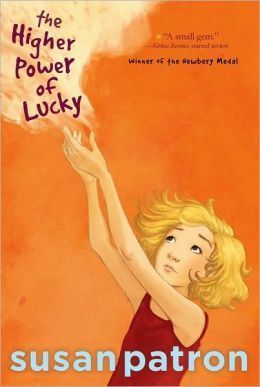
Atheneum Books for Young Readers, Paperback Edition, December 2008.
Besides, when Sophie experiments with pressing her breasts against the glass in order to observe the effect the cold has on them, it’s nighttime and no one else is watching. The scene is no more pornographic than was the scene in Susan Patron’s THE HIGHER POWER OF LUCKY, when the snake bites the dog on his you-know-what.
But words like “scrotum” and “nipple” . . . Well, I guess they just freak people out. People are very easily freaked out. Otherwise they wouldn’t ban IN THE NIGHT KITCHEN by Maurice Sendak, for nudity, because Mickey loses his clothes in the middle of the night. They wouldn’t ban A LIGHT IN THE ATTIC by Shel Silverstein because it has an illustration that suggests that children could avoid washing dishes by breaking them. They wouldn’t ban SYLVESTER AND THE MAGIC PEBBLE by William Steig because the police are depicted as pigs. And they wouldn’t ban THE AMERICAN HERITAGE DICTIONARY OF THE ENGLISH LANGUAGE because it contains “thirty-nine objectionable words” such as the slang terms “knockers” and “balls.”
And now, I’ll share one final letter with you. This one is from an outraged parent:
“Sonya,
I’m trying to understand why such a talented writer has to send such sexual hints to her teenage readers. My almost-thirteen-year-old just read your latest book. Are you trying to give the idea that it’s okay for a teen to have sex? A young teen at that!
Thanks so much for becoming another weapon that attacks and helps to destroy the moral fiber of our youth. Maybe some lucky unwed mother with little education and future will have you to thank.
Think I’m overreacting? Prove me wrong.
Sincerely yours,
Cynthia Shming”
Cynthia asked me to prove her wrong, so I think I’ll give it a try:
“Cynthia:
I’m trying to understand why such a good parent would be upset by a book which sends the very strong message to girls that they should not allow boys to push them further than they want to go.
You obviously haven’t read my entire book, because if you had, you’d have seen that nothing happens in the story except for kissing. You’d have seen that when her boyfriend pressures her for sex, she says she “just doesn’t feel ready” to go beyond kissing. In fact, Dylan’s sexually aggressive behavior is one of the main reasons that Sophie stops dating him.
Thanks so much for becoming another weapon that attacks literature that has a positive message for teenage girls. Maybe you will fight to have this book removed from the library, depriving some future unwed mother of the opportunity to see that saying “no” to a boy is an option.
Think I’m overreacting? Prove me wrong.”

Simon & Schuster Books for Young Readers, August 2013.
I think the wonderful children’s book author, Katherine Patterson, summed it up beautifully when she said: “All of us can think of a book . . . that we hope none of our children or any other children have taken off the shelf. But if I have the right to remove that book from the shelf – that work I abhor – then you also have exactly the same right and so does everyone else. And then we have no books left on the shelf for any of us.”
Now go out there and read a banned book! (Preferably one of mine.) And in the meantime, I’ll keep my fingers crossed that my brand-new book, TO BE PERFECTLY HONEST: A Novel Based on an Untrue Story, will earn itself a coveted spot on a Top Ten Most Challenged Books List someday.
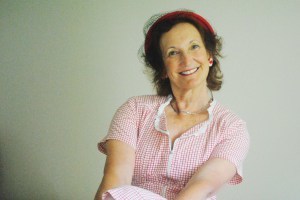
Sonya Sones. (Photo by Rose Brock.)
Sonya Sones has written five YA novels-in-verse: STOP PRETENDING, ONE OF THOSE HIDEOUS BOOKS WHERE THE MOTHER DIES, WHAT MY MOTHER DOESN’T KNOW, its companion WHAT MY GIRLFRIEND DOESN’T KNOW, and TO BE PERFECTLY HONEST (A Novel Based on an Untrue Story) which was released on August 27th, along with The Sonya Sones Collection, a three-book box set of trade paperbacks including WHAT MY MOTHER DOESN’T KNOW, one of the top 100 most challenged books of the decade (to find out why, please see page.46). She lives near the beach in Southern California. Visit her at SonyaSones.com, follow her at https://twitter.com/SonyaSones, or friend her at https://www.facebook.com/pages/Sonya-Sones/175441839174257?fref=ts.





September 22, 2013
Banned Books Month: Guest Post from Lisa & Laura Roecker: Opening Conversations
Shortly after moving into our new house in a small suburb of Cleveland, I was approached by a neighbor.
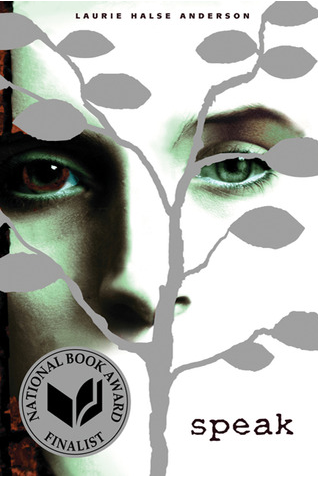
Square Fish, Reprint Edition, May 2011.
“You’re a writer so I have to ask your opinion about a book our eighth graders are required to read. It’s called SPEAK. Have you heard of it?”
My eyes lit up. It’s a classic. One I passed along to many students during my teaching days, the book that turned Lisa into a lifelong lover of YA, a book I will hand to my own children one day, a most important gift.
“Oh that’s wonderful! It’s wonderful!” I was impressed with this teacher in my small town. He or she had selected such an engaging book with such an important message.
My neighbor’s face fell just a little bit and I realized all at once, she was worried about this book. She had probably talked to other parents who complained about the subject matter, who couldn’t understand why a thirteen-year-old boy would need to read about sex. At the time, my daughter was only 8 months old, but I could already see that one day she would need to read this book so it could open the lines of communication and act as a mediator during difficult conversations.
Because that’s the beauty of books. They are completely neutral and are about the most realistic people in the world who aren’t you. And as a young person, sure I thought about myself all the time, me me me, I thought the world revolved around me, everyone was looking at me and no one understood me, but did I want to talk about me? Um…no. But could I talk about a character who was like me? Could I learn from a character? Remember a character forever and ever? Um…yes.
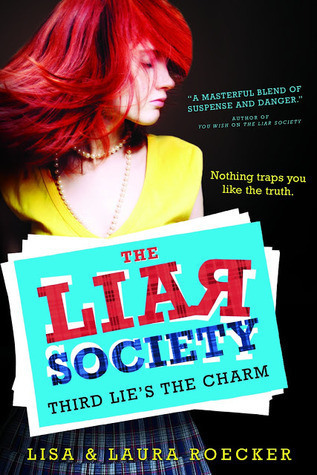
Sourcebooks Fire, December 2013.
As my children grow, censorship becomes much more real and much more close to home. I refuse to believe that all censorship comes from a bad place. I think it comes from a scared place, but not necessarily an evil one. As writers and educators and librarians and book-lovers, we need to keep fighting for titles and authors and art so we can hopefully move beyond all that fear and embrace the gift that these books provide, the doors they open, the lessons they help teach. No matter what the content, we can learn something and talk and grow. And I can’t wait to start the conversation with my own kids. I have a growing pile already and my daughter is only 5!
Whenever I consider a book being banned I’m always shocked that we aren’t fighting to have cable television eradicated or the Internet turned off or movies eliminated. Let’s all take a collective breath and move beyond the “F” word or sex scene or whatever it is someone found offensive and remember that these are all tools. Read with your kids. Discuss. Share. Listen. You might be surprised by your thirteen-year-old’s maturity or your high schooler’s ability to empathize with a character. You might actually learn something.

Lisa And Laura Roecker.
Lisa and Laura Roecker are sisters-turned-writing-partners with a passion for good books, pop culture, and Bravo programming. Not necessarily in that order. Lisa has always been a phenomenal liar and Laura loves to write angsty poetry, so writing for young adults seemed like a natural fit. The sisters live in Cleveland, Ohio in separate residences. Their husbands wouldn’t agree to a duplex. To learn more about THE LIAR SOCIETY series, check out www.theliarsociety.com or THIS IS W.A.R., check out www.thisiswarbook.com.





September 21, 2013
Banned Books Month: Guest Post from Rhiannon Hart: “What’s the matter? Don’t you have married men there?” — Australia and the banned book
Australia in the twentieth century was a playground for wowsers – or so it would seem when consulting the array of books deemed unsuitable for the public between the 1920s and 1970s. The censors had an easy time of it. As an island continent with few printing presses in the former half of the twentieth century, books had to be imported into Australia. Anything salacious could be, and was, seized by customs. Over 15,000 different books were funnelled away from the public eye. The official line was books that were ‘blasphemous, indecent or obscene’ would be banned. The list of titles makes almost gleeful reading: ROAD FLOOZIE, THE HOUSE KEEPER’S DAUGHTER (‘She was curvy and careless and lived down the hall’), HONEY, NOT NOW. The idea that such twee-sounding books could have a corrupting influence on the public seems laughable now. What’s so alarming about a little smut, after all.
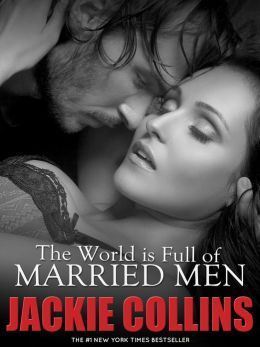
Chances, Inc., 2013 Edition, May 2013.
But what if it wasn’t the smut that got the censored riled? In 1968, Jackie Collins published her first novel, THE WORLD IS FULL OF MARRIED MEN, about a married man who has an affair and his wife who subsequently divorces him. Within a week it was a best-seller in Great Britain and America. But in Australia? Banned. Collins’s publishers told her it was because of all the four-letter-words and advised her to take them out. Collins complied, but the book remained banned. Collins quipped, ‘What’s the matter? Don’t you have married men there?’
Perhaps most famously–or infamously–was the banning of D. H. Lawrence’s LADY CHATTERLEY’S LOVER (1928), the story of a frustrated, posh wife of an impotent man falling into the arms and bed of the gamekeeper. It was banned in Great Britain until 1960, when Penguin, the publisher, tested the new obscenity laws. The law said a publisher could escape conviction if they could prove that an ‘obscene’ book had literary merit. The trial caught the public’s attention, and, when Penguin won, it paved the way for a slew of previously banned books to be reclassified.
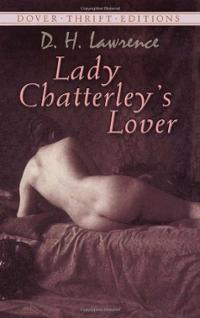
Dover Publications, Reprint Edition, September 2006.
And in Australia, where LADY CHATTERLEY’S LOVER had been banned since publication? Despite the British ruling, it remained banned. The subsequent book THE TRIAL OF LADY CHATTERLEY’S LOVER, which described the British trial, was also banned. The Australian public, then, was to be protected from the corrupting influences of the West.
But it wasn’t only smut and sex that caught the censors’ eyes. Frequently seized were books that were anti-Vietnam war, pro-gay and pro-drug. The banned titles reflected the government’s stance on these issues. Perhaps saddest of all are the pro-gay books on the list, THE HOMOSEXUAL OUTLOOK: A Subjective Approach and THE HOMOSEXUAL HANDBOOK in particular. Sad, because while the ban has ended on these books, the puritanical streak that inspired their censorship still runs deep in Australian culture, and is evident in the previous and present governments’ stance on equal marriage. (Unless you count Kevin Rudd and the Australian Labor Party’s last minute pre-election about-face, perhaps more strategic than anything else.) The new Prime Minister Tony Abbott sees the push for equal marriage as ‘the fashion of the moment’ and sees no reason to make ‘radical changes’: ‘I’m not saying our culture, our traditions are perfect but we have to respect them.’ Same-sex Australians can marry in Canada, New Zealand, England, Wales, parts of the United States and many countries across Europe and South America. But unlike Israel and the Netherlands, the Australian government won’t recognise the marriages made outside their territory.
Consider THE WORLD IS FULL OF MARRIED MEN and LADY CHATTERLEY’S LOVER alongside THE HOMOSEXUAL OUTLOOK and other pro-gay books of the era. What if it wasn’t the sexual activity itself that caused the banning, but who was engaged in it? LADY CHATTERLEY’S LOVER caused ripples around the world in the late 1920s due to its depiction of a cross-class, extramarital love affair. Not only that, but it portrayed a woman who actively sought out sexual satisfaction. THE WORLD IS FULL OF MARRIED MEN is a racy pot-boiler that the novelist’s father couldn’t bear to read, but might it have been the novel’s divorce theme that the censor objected to after all the rude words were taken out? Or was it the title’s pronouncement of a world full of married men and the implication of sexual adventures with said men?
It’s difficult to say what was behind the strict, moralistic approach to book censorship during this time as there were no formal guidelines followed by censors. It seem doubtful that they even read the books they confiscated. Most censorship was done on the spot as cargo and luggage was searched. Booksellers weren’t made privy to which titles were objectionable and often imported banned books unknowingly. The state of New South Wales attempted to clarify things with the so-called ‘Average Householder Test’: is the book in question acceptable reading matter for his family? And there is little doubt that this hypothetical householder was a ‘he’. It is unsurprisingly, then, that female sexual freedom and homosexuality were objected to in a society that privileged marriage, patriarchy and the home.

Random House Australia, September 2013.
There was bound to be a gaffe that exposed Australia’s vehement stance on censorship, and it came when CATCHER IN THE RYE was banned in 1957. It had been circulating freely in Australia since its publication in 1951 until a censor felt it had ‘indelicate, indecent and almost blasphemous references’. A copy was seized from the Parliamentary Library, but when it came out that the book had been a gift from the United States Ambassador as an example of the country’s fine literature, it caused huge embarrassment for the Australian government.
The reign of what has been dubbed the Naughty Books Brigade came more or less to an end when the liberal Whitlam government came to power in 1973. But a strong wowser tendency remains simmering beneath the surface of Australian society, and it’s unlikely to dissipate under a new conservative government that sees no reason for ‘radical change’.

Rhiannon Hart.
Rhiannon Hart is the author of two fantasy novels for teens, BLOOD SONG and BLOOD STORM. Her first love was Jareth the Goblin King at the tender age of eight. She wrote fan fiction in high school but she’d never admit to it out loud, so don’t ask. Hailing from Melbourne, Australia, she’s now a newly minted Londoner, where she works in publishing.





September 20, 2013
Banned Books Month: Guest Post from Chris Willrich: In Defense of A WRINKLE IN TIME
It was second grade, and Mrs. Origines had herded me, a wayward sheep, into a classroom alcove. In her kindly but implacable voice she said I must stop disrupting class and pay attention, and that I wouldn’t be able to leave until I agreed.
This eventually gets around to banned books. Trust me.
Looking back, it seems I was a boy with focus issues. In my own mind it wasn’t that I wanted to ignore the teacher, it was that every room I entered was full of charming, distracting objects. It wasn’t that I didn’t want to study, it was that my imagination was always tugging me into exciting places with spaceships and swordfights.
Mrs. Origines had me figured out, though. I couldn’t disengage from her. She was not a big person, but with her arms folded and her eyes fixed on me she might as well have been a linebacker. I realized I couldn’t wiggle away.
I nodded, but she didn’t let me go until I’d looked her in the eye and given her a spoken “Yes.”
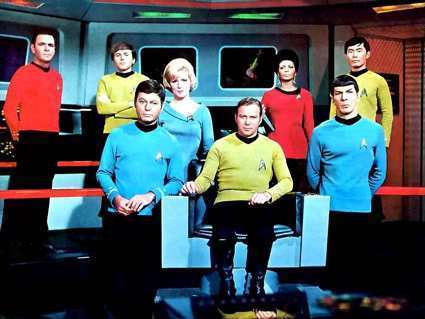
The cast of Star Trek: The Original Series.
I doubt I was a model student after that, but with the fear of Mrs. Origines in me, I did pay more attention. And honestly I don’t think it was just fear, but a dash of shame, a sense I’d been slow to act my age. I wonder if my teacher felt a little sorry for me, or if it was just part of her program of civilizing this barbarian child, but one recess she said, out of the blue, “You like Star Trek, don’t you?”
Of course it wasn’t a secret that I liked Star Trek. In those days it was just a canceled three-season Sixties show living on in re-runs; but a lot of kids liked it. It had spaceships and fighting, after all. But for an adult to have actually noticed was unnerving, as if someone had probed your mind with telepathy. (You could see that on Star Trek too.)
I couldn’t quite put telepathy past Mrs. Origines.
I managed to say, “Yes.” That seemed safest.
“Do you want to know how the warp drive works?” she asked.
If I was surprised that an adult wanted to talk Star Trek, imagine my shock that one would ask me about warp drive.
“Do you?” she said.
I think I was nearly speechless, but somehow managed to convey my interest. Her manner was so serious that I could almost believe that here, in Olympia, Washington, in the second grade, here was someone — a time traveler perhaps, a secret inventor, an extraterrestrial in disguise — who really did know how to send a ship moving faster than the speed of light.
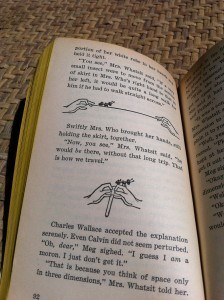
Interior Art from A WRINKLE IN TIME.
The book she brought me did not look entirely promising however. It looked like a kids’ book, not a technical manual from the 23rd Century. She opened it to a page with a line illustration of an ant walking on the edge of a skirt. This did not seem very starship-like.
The ant on the skirt, Mrs. Origines explained with the aid of the pictures, could be like a starship in space. To get to a more remote area of space, it would be convenient to be able to fold space, just as the pictures showed the cloth being folded, allowing the ant to walk a few steps to a distant spot.
Fold. As in warp.
I still didn’t quite get it, though.
“To understand,” I think she said, “you have to read everything up to that part. Maybe you’ll want to read past that. But I just want you to agree to read up to the part with the ant.”
Of course I agreed. This was Mrs. Origines. And I had to admit I was intrigued.
Many, many books later I would become a children’s librarian, a field that terms what Mrs. Origines did with that skittish second-grader booktalking. This was surely one of the oddest booktalks there ever was. But it was effective, because it introduced me to Madeleine L’Engel’s A WRINKLE IN TIME.
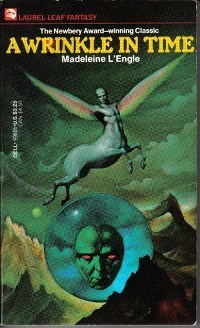
Bantam Books, Mass Market Edition, October 1988.
Now, my second-grade self would like to inform you that the method of space travel in that book — to tesser, as L’Engel, with her wonderful gift for coinages, called it — isn’t much like warp drive after all, since warp drive is obviously much slower and requires huge engines, while L’Engel’s charming aliens Mrs. Whatsit, Mrs. Who, and Mrs. Which can travel much more swiftly with just the power of their minds. Still, the basic point was sound, and why split hairs, as my teacher’s ploy took me across the galaxy with Meg Murry and Charles Wallace and Calvin O’Keefe. It took me still farther, to L’Engel’s A WIND IN THE DOOR and A SWIFTLY TILTING PLANET.
In L’Engel’s books I learned a little about totalitarianism, mitochondria, and the danger of nuclear war. I imagined myself kything, being mentally present with beings in distant places, microscopic realms, or other times, and I’ve never stop wishing I could really do it. To a churchgoing kid it was exciting to see religious themes explored, with a light touch, on a cosmic canvas to rival anything in Star Trek (a feeling I’d later get from reading writers as disparate as C.S. Lewis, Philip Pullman, Arthur C. Clarke, Olaf Stapledon, and Gene Wolfe.) I also intuited some other themes, about bravery that doesn’t involve violence, about how we humans are in this together in an often hostile universe, and, eventually, a mature view of romantic love that had little to do with its popular portrayals, then or now.
Naturally as a librarian I often recommended A WRINKLE IN TIME. I didn’t get as many takers as I wished, but, then, there are many wonderful books out there. And a few times my booktalking, though lacking the punch of my second-grade teacher’s, managed to work.
Also naturally, I was startled the first time I discovered L’Engel’s classic has been frequently challenged by people hoping to keep it under wraps. Critic Anita Silvey writes, “Censors have decried the didactic qualities of the text or the overt Christianity; others have objected to Mrs. Which and her resemblance to a witch.” Sometimes it seems the book can’t win, condemned for being too religious or not religious enough.
Trying to suppress a work is like the mirror image of booktalking. Instead of talking a book onto a reader’s nightstand, we try to talk it out of existence. Yet it so often seems a self-defeating gesture. Trying to remove a book stirs up discussion, and builds up interest. And even the rationales so often seem misdirected. George Orwell’s classic anti-totalitarian novel 1984 has been condemned on the grounds it’s somehow pro-communist. Similarly, Lois Lowry’s THE GIVER has been challenged for presenting grim details about a dystopian future — the whole point of a cautionary tale!

Little, Brown and Company, Mass Market Edition, May 1991.
There’s also the peculiar way in which swearing, sex, and substance abuse sometimes seem to trump every other aspect of a book. One of my college professors remarked it baffled him why an essentially “sweet and innocent” book like CATCHER IN THE RYE attracted so much fury, while a book as savage in its outlook as WUTHERING HEIGHTS remained serenely on high school reading lists. J.R.R. Tolkien’s work has been challenged because we see wizards and Hobbits smoking tobacco. Author Cory Doctorow has said it surprises him how his near-future thriller LITTLE BROTHER, which depicts teenage hackers challenging the U.S. national-security apparatus, catches flak for mentioning sex, drugs, and alcohol, while its government-defying message is shrugged off.
Ultimately, attempts to ban books seem to have more to do with the obsessions of the would-be censors than with the books themselves. Some people appear to fear that to name a thing, or to describe it, is also to endorse it. Some believe that it’s wise to shield children, including teenagers, from even watered-down discussion of life’s tougher realities. Many seem trapped in a fearful, even medieval, worldview where saying a few words in Latin, like the wizards in the HARRY POTTER series, can invoke evil forces. And some have such a narrow, controlling take on their own religion that they condemn co-religionist authors (Tolkien, Lewis, and L’Engel being great examples) who bring aspects of their faith into their imaginative visions.

Pyr, September 2013.
As a children’s librarian I never personally experienced a book challenge, though I did hear now and then frustrations that our library would carry or recommend certain materials. Part of the job, as I saw it, was to have empathy, and often I could intuit where people were coming from. Sometimes it’s a perilously short jump from thinking, “I would rather my child not read this” to “I would rather no child read this.” As a father of two, I’m often struck by how different two families, and two individual children, can be; and yet sometimes I’ve felt the temptation to think my own experience is universal. As a fiction writer, I try to get into the heads of characters very different from myself, to kythe, so to speak. Thus, I can see at least some book challenges as stemming from misplaced protectiveness.
Yet sympathy has its limits. If A WRINKLE IN TIME had never come my way, it’s possible things would have been all right. But it’s also just possible I’d have become one of those boys who misses out on the pleasures of lifelong reading, a hole in my universe that even the crew of the starship Enterprise couldn’t fix.
So during this celebration of the freedom to read, with its promise that no would-be censor ever gets to disrupt the whole “class” as it were, I would like to share the wish that every book challenge be met with a Mrs. Origines standing beside the bookshelves — benevolent, empathetic…and utterly implacable.
Sources consulted:
Banned and Challenged Books web resource, American Library Association, retrieved August 2, 2013. http://www.ala.org/advocacy/banned
Banned Books Awareness web site, maintained by R. Wolf Baldassarro, retrieved August 2, 2013. http://bannedbooks.world.edu/about/
Doctorow, Cory, interview. Conducted by Anne Strainchamps. To the Best of Our Knowledge (radio program), March 13, 2011. Audio file available at
http://ttbook.org/book/cory-doctorow-little-brother
Silvey, Anita, 100 Best Books for Children. New York: Houghton Mifflin, 2004.
[image error]
Chris Willrich.
Chris Willrich, a former children’s librarian, is the author of THE SCROLL YEARS (Pyr 2013), a fantasy novel that does its share of bending space and time.





September 19, 2013
Banned Books Month: Guest Post from Elisa Nader: Reading Banned Books is Punk Rock!
“Punk rock is just another word for freedom.” – Patti Smith
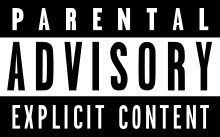
Parental Advisory!
I’m naturally rebellious. I can’t help it. I’m immediately suspicious of being told what to do and how to do it. That’s why, when I was a teen, I connected with punk culture and the DIY initiative. I recognized if an idea was deemed off limits, it must frighten someone, so it must be worthy of exploration.
“Undermine their pompous authority, reject their moral standards, make anarchy and disorder your trademarks. Cause as much chaos and disruption as possible but don’t let them take you alive.” – Sid Vicious
Oh, Sid.
I didn’t want to cause chaos and disruption. I didn’t think anarchy was the answer (necessarily), and, hell, if “they” wanted to take me alive, I definitely would have preferred it.
What I did want was access to ideas. I wanted to know more, experience more. I never set out to read ban books, mostly because I didn’t know at the time books were actually banned. Music, yes, but books?
The news was everywhere in the early ‘90s. The music industry agreed to add labeling to albums, calling out lyrics that were deemed unacceptable to minors. When record stores ruled, and teens congregated among the stacks, those same stickers, warning parents of the album’s content are exactly what made those records more desirable. And, in turn, spiked sales for these records.
The Parental Advisory sticker became a badge of honor for musicians. (Do you think Tipper Gore thought that would happen?)
“Punk is musical freedom. It’s saying, doing, and playing what you want.” – Kurt Cobain
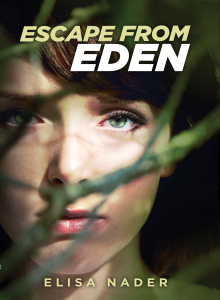
Merit Press, August 2013.
When I was younger, I played bass guitar in a couple of bands, and I probably would have paid any record label to add the Parental Advisory sticker to our album. I know for other teens like me it would have been one of the first records I would have picked up.
Now that I’ve published my first book, would I want it to be a challenged or banned book? My answer is simple: Hell yes.
Of course I don’t want my book out of the hands of teens because someone other than their parent or guardian thinks it’s inappropriate.
But if it is banned, it means something in my book challenged someone; an idea, a scene, a certain turn of language, a specific situation ended up sparking a conversation to question its content.
ESCAPE FROM EDEN is about Mia, a sixteen year old girl living in a religious commune in the middle of the South American jungle. The commune, called Edenton, is surrounded by miles of rainforest; isolated and not under the jurisdiction of any government, the Flock is left to live and worship as they wish. Or as the Reverend Eden wishes.
Mia, brought to the commune at the age of ten by her mother, realizes the isolated world of Edenton isn’t what she wants in life. Her mother, however, believed the commune was what was best for her children. Mia’s mother wanted to protect her kids from the evils of the outside world and, in turn, made them more susceptible to danger than she ever imagined.
ESCAPE FROM EDEN is about how well-meaning people can become so consumed with the idea of control; they forget the importance of individual freedoms. Authority, however well-meaning—or tyrannical, for that matter—should be questioned.
Sid would be proud.
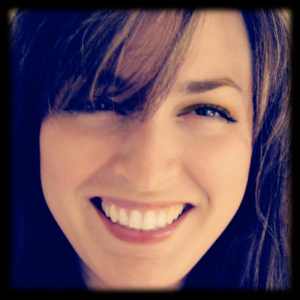
Elisa Nader
Elisa Nader was born and raised in Washington D.C. While attending Virginia Commonwealth University in Richmond, VA, she began writing her first novel, but quickly cast it aside as her love of music took hold, and she picked up a bass guitar. Three bands and five years later, she moved back to Washington and rediscovered her love of writing, penning arts and entertainment pieces for the Washington City Paper.
But, once again, writing took a back seat. After a stint at The Washington Post as a lead website designer for the Arts and Entertainment section, she began a long career at AOL as a creative director, working alongside such companies as Time Warner, Travelocity, MapQuest, Bebo, Moviefone, and many more.
Since leaving the company, she spends time writing, raising her seven-year-old daughter, and working alongside her husband in their new venture, Mag7, a User Experience Design collective.
After watching the Cults video “Go Outside,” Elisa was inspired to write ESCAPE FROM EDEN. It is her first novel. When she’s not writing or designing, she’s avoiding putting away laundry. Elisa, her husband, and daughter live just outside of Washington, DC, with their two psychotic, but charming, cats. Follow her on Twitter @elisanader.





September 18, 2013
Banned Books Month: Guest Post from Phyllis Reynolds Naylor: Censorship Finds Me
I’ve never gone looking for censorship, but it usually finds me. My books have been challenged on religious grounds, and for both inappropriate language and sexual content. I often finish a manuscript and think, “Now, what can there possibly be in this book to upset anyone?” and I’m always amazed.
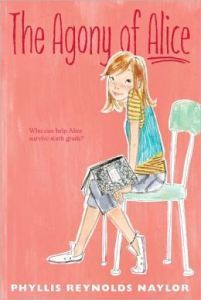
Atheneum Books for Young Readers, Reprint Edition, 2011.
THE FEAR PLACE was challenged because I used the word “pee;” SHILOH was challenged because the villain says “Hell” in one place and “Damn” in another. (Never mind that he starves his dogs, cheats shop owners, and kills deer out of season). A STRING OF CHANCES was challenged because a teenage girl questioned her father’s beliefs. (It was okay to question, the complaining father wrote, if she had agreed with him in the end). LOVINGLY ALICE was challenged because Alice’s father explains the facts of life to her. The mother who wrote to me said her daughter read the book when she was ten, and the mother had wanted to wait until she was eleven. “Now the words penis and vagina will be forever ingrained on her mind,” she said. And my witch series was challenged by a woman who confronted me after a talk, and these were her exact words: “So why are you writing books about witches when there are all those people in California running around wearing necklaces made out of the fingers of unborn babies?”
I am kind to my critics. I always answer their letters and try my best to understand their viewpoints. But there are times I feel like answering as one author once did: “Dear Madam: I am sorry to inform you that an insane person has used your typewriter to write a letter to me. . .”
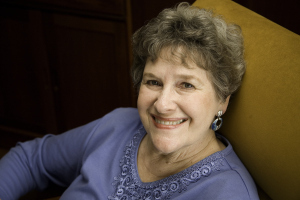
Phyllis Reynolds Naylor. (Photo by Patrice Gilbert.)
Phyllis Reynolds Naylor has written more than 135 books, including the Newbery Award–winning SHILOH and the ALICE series. She lives in Gaithersburg, Maryland. To hear from Phyllis and find out more about what’s in store for Alice, visit AliceMcKinley.com.






